The Senior Psychiatry Unit at TrustPoint Hospital is designed for men and women ages 65 and above who meet one or both of the following criteria:
- Behavioral disturbances related to dementia or other cognitive disorders
- Mood disturbances and/or struggles related to grief, loss, and other adjustments
What are the visiting hours on the behavioral senior unit?
Visiting hours depend on the patient’s room number. Visiting hours for odd number rooms are Tuesday / Thursday / Saturday 3:45-4:45 pm. Even number room have visiting hours on Wednesday / Friday / Sunday 3:45 -4:45 pm. There are no visiting hours on Monday.
What items should patients bring with them at admission?
We usually encourage patients to bring 3 days’ worth of comfortable and casual clothes to wear during the day and hospital gowns are available for sleep. It is vital that you have shoes with no-slip soles to reduce the risk of falling. It is important that you bring clothing that does not have strings, ties, or belts. We have laundry available and will make sure you have clean clothing. Due to the nature of patients with cognitive disturbances, lost items are very common. We do have some clothing available for patient use to preserve dignity and avoid lost items.
Can I bring in food for my loved one?
Please consult with your loved one’s Social Worker or Nurse before bringing in outside food.
Can I call and speak to a nurse for an update on my loved one?
Our Nursing staff is present 24 hours a day. Please understand, our number one concern is for the care of our patients, so we ask for your understanding if you do not receive a call back immediately. You may also reach out to the patient’s social worker for assistance.
Family Therapy
Family members are not only impacted by their loved one’s health challenges, but they also have an important role to play in their loved one’s continued recovery. For this reason, we are proud to offer family therapy sessions for Senior Psychiatry Unit patients and their loved ones. Family therapy sessions, which are led by experienced social workers, are scheduled on an as-needed basis. These sessions can be valuable opportunities for family members to address the way that their lives have been affected by their loved one’s struggles, to heal rifts and strengthen the family unit, and to help family members learn how to care for themselves and their loved one once he or she has completed treatment and returned home.
Discharge Planning
At TrustPoint Hospital, we realize that inpatient care is just one element of what can be a long recovery effort, and we endeavor to ensure that patients in the Senior Psychiatry Unit have the support and direction necessary to maintain and build upon the progress that they make with us after they have returned home or transitioned to their next level of care. By the time a patient has completed his or her time in the Senior Psychiatry Unit at TrustPoint, our professionals will have developed a thorough plan that documents his or her progress and identifies referrals, community-based resources, and other necessary support services that may be of ongoing benefit to him or her.
For more information about the Senior Psychiatry Unit or any other aspect of programming at TrustPoint Hospital, please feel free to contact us at your convenience. We look forward to answering all of your questions and helping you make the best treatment-related decision for yourself or on behalf of a loved one.






